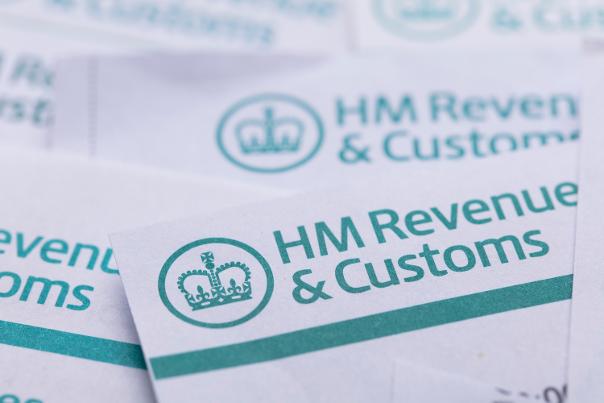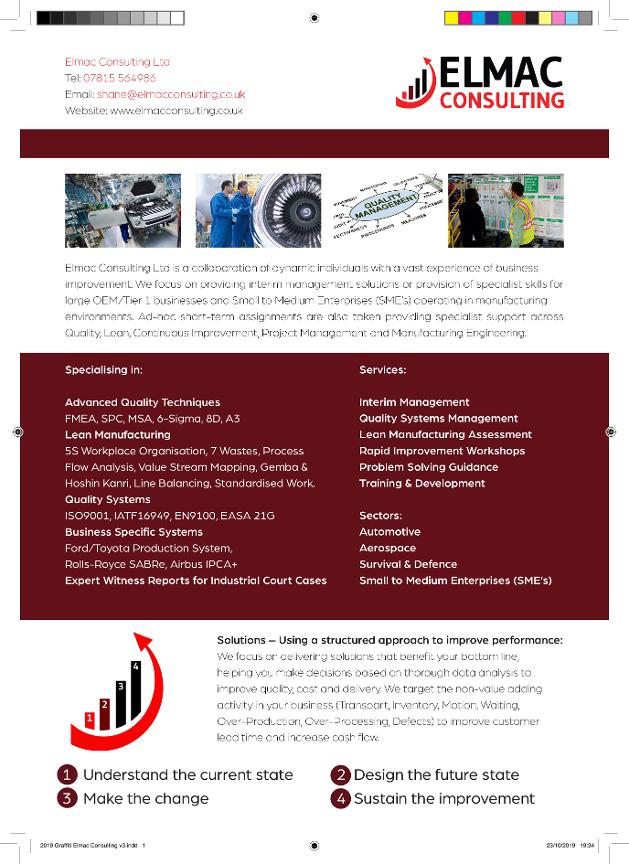
















W ill Lab o ur ?s p lan f o r
g r o w t h act u ally w o r k?
Tw o ec o n o m is t s r es p o n d




Phil Tomlinson Professor of Industrial Strategy, Co-Director Centre for Governance, Regulation and Industrial Strategy (CGR&IS), University of Bath
David Bailey Professor of Business Economics University of Birmingham
The UKchancellor Rachel Reeves says the Labour government will go ?further and faster?to kick-start the British economy Economic growth ? to raise living standards and fund public services ? is apparently a core mission of this government.
Yet since the general election last July, this growth has proved elusive
In fairness, the UKeconomy been pretty stagnant for a long time. And as Reeves sometimes mentions, she arguably inherited the worst set of economic circumstances since 1974
Nevertheless, the government has been guilty of some major own goals. The means-testing of winter fuel payments drew derision, while the public framing of a ?painful?budget in October 2024 dented business and consumer confidence.
So after a difficult first six months in office, the chancellor?s big speech on January 29 was an opportunity for a major economic reset And there were some signs of encouragement.
She reaffirmed, for example, a commitment to reforming the UK?s antiquated planning laws for residential and commercial building And there was a big emphasis on public investment, which is to rise to 2.6% of GDP over this parliament, compared to the previous government?s plans of 19%
Airport expansion at Heathrow (and to a lesser extent, Luton and Gatwick) aims to enhance global connectivity and increase trade and investment, especially with emerging economies
But those plans, which run counter to the government?s net zero goals, unsurprisingly sparked the ire of environmental campaigners, as well as some senior Labour MPs and party donors
They may also widen the UK?s regional inequalities, drawing more investment and economic activity to the south-east. The same goes for the notion of building Europe?s ?Silicon Valley?between Oxford and Cambridge
That said, some other regions may benefit


from announcements, which included a £28 million investment in Cornish Metals (for materials for solar panels and wind turbines), and £63 million for advanced fuels, which should bring more high-skilled jobs to areas like Teesside There were also plans for housing and commercial redevelopment around Old Trafford in Manchester
Some of these projects will form part of the government?s new industrial strategy, which is expected in the spring
Red tape restrictions
One word to look out for when that strategy is unveiled is ?Brexit,? which continues to act as a drag on the UK?s growth. Yet in her speech, while Reeves used the ?growth? word more than 50 times, she mentioned Brexit just once
It deserves much more attention. For investment in the UKhas been lacklustre since the 2016 referendum, and research shows that post-Brexit red tape has hampered exports, especially for smaller firms. Overall, the UK?s exports of goods are down by 9% since 2020, while similar economies have seen their exports rise by 1%
The chancellor has previously suggested a Brexit ?reset,?and there may be a future deal to ease some Brexit agri-food trade barriers Reeves has also floated the possibility of the UKjoining a ?Pan-Euro?customs zone
Other moves that might help UK manufacturing include a bill that would allow the government to keep pace with new EU product safety regulations, and anything else which avoids new administrative costs for businesses.
Yet despite the government perhaps adopting a more conciliatory tone with the EU, there are frustrations with the UK?s ?red lines,?such as a refusal to agree to a scheme that would make it easier for young EU citizens to travel, work and study in the UK, and for young UKnationals to do the same in EU member states
Execution
And while the chancellor?s speech highlighted the government?s long-term ambitions for growth, there was little to address current weaknesses quickly
For despite a change to Labour?s self-imposed fiscal rules last autumnn, the government still faces significant public borrowing constraints This will restrict the amount of investment required to fundamentally transform public infrastructure, without major private sector support
And planning reforms, infrastructure projects, and new trade deals all take time and face political, legal and logistical hurdles This will also delay growth Labour?s ambitions for a more pro-growth, pro-business agenda mark a positive shift, at least in tone. But actual, visible, tangible growth depends on execution. This in turn depends on private sector money, overcoming bureaucratic hurdles, and cutting the Brexit red-tape that continues to hamper trade with the EU.
Without effective action across the board, including immediate fiscal stimulus, the chancellor?s words may begin to sound a little hollow if the mission for growth soon starts to look like mission impossible.

Technology company WestSpring has appointed Victoria Parker as chief operating officer Victoria has joined the team following a 20-year career at a technology recruitment company where she rose to director. She will help shape WestSpring's growth.

Growing technology company WestSpring is ringing the changes by appointing experienced operations director Victoria Parker as their new chief operating officer
Victoria (43) has come to the South West company following a 20-year career at a specialist technology recruitment company in Swindon where she rose to director level She was headhunted as an expert to help WestSpring as it manages its exceptional growth
?My vision for my new role is to ensure WestSpring operates efficiently and to create a stable operational platform upon which the business can grow The team has done a brilliant job so far ? we have happy customers, virtually all new business comes from referrals and (probably most importantly) everyone cares about the work they are doing and the success of the company as a whole.
Executive chairman James Phipps said: ?We are delighted we have been able to attract the calibre of leader in Victoria to WestSpring We are a high growth business and as we continue to grow the experience and leadership Victoria will bring will be indispensable to us being able to continue that growth Our shared values and focus on the community is a key reason for her joining us as this exciting time.?
Victoria will also be working with the WestSpring team to become ISOaccredited and she admits that it has taken an amazing opportunity to tempt her away from a job she has enjoyed since she was in her early twenties
?This was a big move for me ? I wanted to push and challenge myself, give myself an opportunity to learn new things within a new
industry, within an organisation that cared about people and supporting our local community.?
WestSpring is a Bristol-based company which is expanding rapidly and in the last year alone has seen growth of more than 30 per cent and revenue for the year will be close to £4 million
Founders Jase Small and Phil Cater have recently asked South West entrepreneur James Phipps to become their executive chairman to assist their growth and expansion The appointment of Victoria is the next phase in their expansion plans The team hopes to open a satellite office in Swindon later in 2025.
Phil said: ?We?re very excited to have Victoria come and join the team and as we continue to focus on our service and technology offering to our clients we are ensuring that we have the best talent in the south west to facilitate that.?
Being Swindon-based, Victoria also brings local knowledge of the Wiltshire business landscape. At home, she is also involved as a volunteer with the not-for-profit organisation the Platform Project where she is chair of the board The Platform Project focuses on providing young people with real-world business skills and experiences to support their transition into work
WestSpring provides strategic managed IT solutions, with service excellence a priority, establishing long-lasting partnerships with businesses in the UK. The team recently won the Customer Loyalty trophy in the 2024 Lloyds Bank Business Excellence Awards Their clients include Halo Leisure, Circadian Trust, Method Consulting and Precision Resource Group






The Joseph Rountree Foundation (2025) UK Poverty 2025 Report, published Wednesday 29 January, clearly shows that work doesn? t protect families from poverty
In particular, the report highlights the ?shockingly high?number of children living in poverty in working families:
- 50% of children in families where at least one adult is (but not all adults are) in work live in poverty
Working-age adults are also impacted:
- Two-thirds (68%) of working-age adults living in poverty are in a household where at least one adult works
Responding to these figures, TUCGeneral Secretary Paul Nowak said:
?Every worker deserves to earn a decent living But many working households are struggling to keep their heads above water
?This is unacceptable. Working people should be able to put food on the table for
David Pimborough/ Shutterstock.com
their families and keep their children warm during the winter.
?After 14 years of Tory chaos and stagnation, we urgently need to boost living standards
?That?s why this government?s Make Work Pay agenda is so crucial for millions of families up and down the country.
?More money in working people?s pockets means more spend on our high streets ? that's good for workers and good for local economies.
?And the Employment Rights Bill will mean more good and secure jobs ? boosting productivity for businesses and giving workers more control over their lives and better chances to progress.
?Better work is crucial for ending child poverty, but decent social security matters too The Government must remove the two-child benefit cap which is keeping too many children in working households in poverty.?

Why are workers so confident?
Data suggests staff remain optimistic despite economic climate.
55% of the workforce remain confident about their job security over the next six months.
50% cited their performance and niche skills as the main driver.
Only 20% indicated jobs confidence is linked to the strength of the industry they are in.
There are stark differences in confidence across regions At the extremes, a 64% confidence rate is the highest in London region versus 46% in

the West Midlands
Workers continue to be optimistic about their job prospects despite the economic climate, but some regions are much more confident than others
That?s according to the latest data from international recruitment expert, Robert Half.
According to a new study from the firm ? carried out by insight agency Opinium between 4th February and 7th February 2025 ? 55% of the workforce remain confident about their job security over the next six months, despite economic headwinds
When asked why, 50% cited their performance and niche skills, while 20% indicated that their industry is growing or in demand, suggesting that ongoing skills shortages and a tight labour market continue to put the power in the hands of highly skilled workers.
While the data reveals that worker confidence is high across the board, the statistics also highlighted regional divides when it comes to worker sentiment
In the London region, 64% of employees are confident in their job security However this falls to 56%in the North West and 46%in the West Midlands.
Matt Weston, Senior Managing Director UK& Ireland, at Robert Half commented:
?The professional services sector continues to experience strong demand for talent, boosting worker confidence despite conflicting economic headlines Our recent Hiring Intentions survey highlights UK
business leaders' plans to increase the hiring of specialised professionals
"According to our data, 82% of businesses plan to make hires in finance and accounting, IT, customer service, and marketing & creative roles across all types of employment (permanent, contract and project based) during the first half of 2025, which in fact is a 5% increase on H2 2024.
"Nonetheless, the regional disparities that we see in worker confidence, likely driven by the availability or lack of nearby opportunities, suggests that the levelling up and growth agenda hasn? t yet created a level playing field across the country.
?The fact that 50% of employees cite their performance and skillset as the main driver for their job security confidence, compared to 20%who mention industry strength, indicates that systemic skills shortages will likely continue shaping a complex labour market in 2025
"In this scenario, candidates, particularly in highly skilled professional services, hold the upper hand in the hiring process Their expertise and in-demand skills give them the power to set expectations, negotiate favourable terms, and choose from multiple opportunities in their career progression.
"Given confident employees and a tight market, employers must adapt their talent strategies to align with regional workforce sentiments, invest in targeted training programs, and offer competitive compensation packages to stay ahead when attracting skilled professionals?






In this edition, Craig Sergeant of Advance Copy sharesthe stories behind three of business history?s biggest change management gains and gaffes.
Picture this One evening, sometime during the 1970s in Oakland California, two young married couples share dinner in a beautiful home
Maybe there?s a lot of dark wood panelling It?s likely there?s plenty of denim And almost certainly, beneath the scent of the homecooked meal, there?s a layer of lingering cigarette smoke
Tonight?s hosts are an affluent businessman and his wife He?s a brand-new client of a fledgling investment firm ran by their guest, Randall Fields It?s a night of talking finances, deals, strategy Proper Grown-Up Stuff
It?s also a night of getting to know each other on a human level. Randall introduces his young wife, Debbi, and talk turns to her.
The host asks, ?What do you do??
Coming from a humble background and after a few years working as a ballgirl for the baseball team, the Oakland Athletics, Debbi is now a happy housewife who loves baking cookies She replies: ?Oh, I?m just trying to get orientated?
For the host, this clearly does not do.
Without a word, he gets up and takes a huge leather-bound dictionary off the shelf. He thrusts the book at Debbi and sneers, "The word is oriented If you can't speak the English language, you shouldn't speak at all."
Debbi is crushed with embarrassment. Tears stream down her cheeks But as soon as it feels like an emptiness opens inside, an idea starts to form Arealisation She hears her father?s soothing voice in her head. He reminds her of his old saying: ?Wealth means doing something you love?
She recalls: ?And what I loved was cookies So, that night, I gathered myself together and set out to become a somebody.?
Debbi starts a cookie company called Mrs Fields Within a few decades, it?s valued at $450 million Today, it?s even more
Now, while that story reflects certain attitudes and behaviours that are hopefully consigned to history, it shows how turning points can happen to anyone at any time.
Fuelled by the desire to prove the world (and

her husband?s client) wrong, Debbi completely changed the course of her life and livelihood
In business, such levels of major change are inevitable and come in many forms. At any one time, you could deal with demands as disparate as staff turnover, shifting consumer tastes or low confidence in the global economy ? all while trying to keep your business moving forwards.
So, how?s it even possible to manage change when so much of it is out of our control?
At the risk of slightly oversimplifying complexity, it boils down to being proactive or reactive ? and timing it right.
Formed in 1892, Kodak spent more than a century as the industry leader, building an empire based on photographic film
The company?s global success meant that even its marketing slogan, ?Kodak moment,? became a part of people?s everyday language. Whenever something significant, interesting or funny may have happened, that was a Kodak moment ? the perfect opportunity to take a picture.
But in the final quarter of the 20th century, a new threat to their dominance loomed: technology
In Kodak?s favour, they were always proactive They invested huge sums into research and development. They had stunningly accurate market assessments into the risks and opportunities they faced
And despite an internal report in 1981giving them ten years to start pivoting to becoming


a digital-first company, Kodak remained resolute in its commitment to photographic film
So instead, it made baffling products like a film-based camera that showed previews on a digital screen Asort of Frankenstein?s monster that pleased nobody ? why bother with film on a digital camera?Obviously, it bombed.
Eventually, inevitably, Kodak came crumbling down, filing for bankruptcy in 2012
From our present-day vantage point and with the benefit of hindsight, it?s easy to scoff at such demise and lack of foresight. Their proactivity in R&Dmeant they were perfectly positioned to survive and thrive through what would turn out to be humankind?s fastest period of technological advancement
But when organisations are on top for so long, they grow to enormous sizes, which makes it extremely difficult to change course
And when a threat is something brand new, like technology, it?s almost impossible for the swathes of decision makers, stakeholders and shareholders to understand it, let alone agree to the wholesale changes that would save them before it?s too late
It?s only natural for people to understand what they already know ? in Kodak?s case, it was the moneymaker: photographic film
But it all could have been so different After all, the first ever digital camera arrived in 1975. The company that invented it? Kodak. Adapt
Not every business blunders in the face of
change, though
When was the last time you went on YouTube?Probably quite recently, right?

In fact, you might even be on YouTube ? whether starring in your business?s promo videos or as a personality in your own right
But did you know that YouTube was, in its original guise, a dating site?
The idea was for people to upload videos of themselves to appeal to others The site even had a strapline: ?Tune in. Hook up.?
Co-founder Steve Chen revealed how he and
his team started with the output ? video ? and then attempted to reverse-engineer a concept.
?We always thought there was something with video there, but what would be the actual practical application??he said ?We thought dating would be the obvious choice [but] the whole thing didn? t make sense?
Rather than continue to push a failing venture just because they?d already invested heavily in it (a psychological phenomenon called the sunk-cost fallacy), the team at YouTube made a decision to open video

uploads to everyone and see what happens Success.
The fast pivot allowed users to drive YouTube?s direction, turning it into the video-sharing platform we use today ? the second-most used website on the planet
Not before the team sold it to Google in 2006 for $165 billion, mind
Of course, that?s not to say that a business needs to change for the sake of it
It?s a fine balance trying to remain ready for anything while avoiding the latest craze or snake oil (remember the metaverse?).
While the examples we?ve looked at have focused on large American companies, the ways to deal with change are universal
Whether you choose to innovate, diversify, change course or remain the same, you need to time it right to avoid your own Kodak moment But how?
You just have to get orientated. Or oriented. Same thing.
Words:Advance Copy Image credit:AlexYeung/ Shutterstock com

The Financial Conduct Authority?s (FCA) review of private market valuation processes has found good practice but some room for improvement
Private markets have grown significantly in recent years with the UKcontinuing to be the largest centre for private market asset management in Europe
Private market assets don? t have the frequent trading and regular price discovery present in more liquid public markets, so robust valuation practices are important for fairness and confidence in private markets
The FCArecently completed a multi-firm
assessment of valuation processes and governance for valuing private equity, venture capital, private debt, and infrastructure assets
Firms generally demonstrated good practice in areas, such as investor reporting, process documentation, use of third-party valuation advisers, and were consistently applying valuation methodologies
However, the FCAfound areas where firms need to improve. These included the need for better identification and documentation of potential conflicts of interest in the valuation process, and increased independence within firms?own

T. Schneider / Shutterstock.com
valuation processes.
The FCAalso found that some firms needed to enhance processes for ad hoc valuations in times of market disruption
Improvements in these areas are particularly important with growing retail investor exposure to private assets.
Camille Blackburn, director of wholesale buy-side at the FCA, said:
?The UKis the largest centre for private asset management in Europe. Investor demand from individuals and institutions has driven significant growth
?Good valuation practices are key to
maintaining fairness and confidence as the market grows. We were pleased that firms could usually evidence independence, expertise, transparency and consistency in their valuations process
?There is still more to do, and we expect firms to carefully consider our findings.?
The findings will be used in the FCA's review of Alternative Investment Fund Managers Directive (AIFMD) as it updates its rules in the Handbook and will inform the FCA?s contribution to IOSCO?s review of global valuation standards to support the use of proportionate and consistent valuation standards globally in private markets











Britain?s unearnedwealthhas ballooned: amodest capital taxcouldhelpavoid austerityandboost theeconomy
Stewart
Lansley Visiting Fellow, School of Policy Studies, University of Bristol
Inheriting the worst set of public finances for decades, Labour was always going to face an uphill struggle trying to fund improvements to the UK?s public services.
Inflated debt and recent hikes in the cost of borrowing mean the government is faced with stark choices For it will be difficult to meet the Chancellor?s own tight fiscal rules without further tax rises or cuts in public spending.
But as the former chief economist at the
Bank of England, Andy Haldane, has warned, further spending cuts would be ?deeply counterproductive?
One solution for avoiding ongoing austerity lies in raising a higher proportion of taxes from assets For despite the UKenjoying a long personal wealth boom, little of this boom is the result of new wealth creation or higher productivity.
Much of it is unearned. Some is the product of corporate wealth extraction, where









dividend payments and personal fortunes have have been prioritised over the long-term health of a company Some privatised water firms, for example, have been turned into cash cows for their owners
Another large part of British unearned wealth is the product of state-induced asset inflation Since 1999, house prices in England have risen almost three times faster than incomes
This kind of asset inflation is a classic example of ?passive accumulation? Or, as the 19th-century philosopher John Stuart Mill described it, getting rich in your sleep
As a result, household wealth currently stands at over six times the UK?s GDP. It was three times in the 1970s
Yet while Britain is asset rich, its tax system is heavily based on earnings from work Taxes on income from dividends, capital gains and inheritance make a tiny
contribution to the public purse.
This is a fundamental flaw of the tax system, which does little to dent the growing concentration of wealth owned by the few Through political inertia, the tax system has failed to catch up with the growing importance of wealth over income
The fallout from the low taxation on wealth is well illustrated by the role of inheritance
Levels of wealth passed on after death in the UKhave been rising sharply Over the next three decades, some millennials are expected to inherit a staggering £5.5 trillion, dwarfing all previous transfers of wealth between generations
The lion?s share of this transfer will go to the most affluent. The lifetime wealth of those with parents in the richest fifth will see their wealth grow by 29% ? compared with 5% for


those born to the poorest fifth.
This will only intensify the reproduction of the wealth divide of the past
Extending the tax base is not just about fairness or revenue raising Asset holdings are often little more than unused resources, while big inter-generational wealth transfers can play a counterproductive role in the economy
Over a third of the UK?s wealth is stored in property (with the rest in pensions, savings and possessions). This is mostly only realised when passed on through inheritance, where its benefits accrue to the already privileged Little of this process contributes to more productive activity, with one of its most malign effects being to fuel higher house prices because the money is largely reinvested in property
The unfairness of inherited wealth has long been recognised The patron saint of economics, Adam Smith called it ?manifestly absurd?
Amodest and phased rise in capital taxation would help to reduce the passive role played by wealth holdings Even small changes would release funds which could be used to improve social infrastructure from schools to hospitals.
One approach would be to build on the existing tax system through higher rates and fewer reliefs and loopholes The second would be to introduce new taxes.
In her first budget, Rachel Reeves took steps
to raise revenue through the first option, from both inheritance and capital gains tax. But these were too modest to alter the overwhelming dominance of tax on earnings
Amore fundamental shift would be to reform the existing system of council tax with a larger number of tax bands at the top Still based on 1991property values, this is perhaps the least defensible tax in Britain
The most effective alternative would be to replace council tax and stamp duty with a single proportionate ?property tax?
Another option would be for a modest annual 1% tax on wealth over £2million, which has the potential to raise around £16 billion a year, or double that on wealth over £1million
Such a measure could be sold politically as a ?solidarity tax?to help pay for the things the UKneeds And while governments have been wary of the political reaction to higher taxes on wealth, the tide is turning.
Those supporting higher taxes on wealth include the Conservative-aligned think tank Bright Blue and an influential campaign group called the Patriotic Millionaires There is also growing public support.
Continued public spending austerity would drive more years of stagnation It would also be politically suicidal for this government, as it was for Labour in 1931and in the 1970s
But harnessing a little more of the country?s immense private wealth would make the tax system more equitable and by providing the resources to boost social investment, ease the path to economic recovery.

Smal l bus ines s gr owt h
f or ec as t s f al l f or t he f ir s t t ime s inc e Jul y 2024

The percentage of UKsmall business owners predicting growth (33%) has dipped to a nine-month low, according to the latest quarterly data from Novuna Business Finance. Whilst 45% see Q1as a standstill period, there is a four-year high in the percentage of small businesses saying they will contract by the end of March (13%) and the percentage of enterprises that fear closure in the next three months has hit a two-year peak (8%)
The findings are from Novuna Business Finance's Business Barometer study, which has tracked the growth forecasts of more than 1,000 small business owners every quarter for the last 11years
The new Novuna Business Finance data reveals that UKsmall business owners are already gearing up for contraction, with major falls in growth forecasts already registered across many key regions
- In London the percentage of small business owners predicting growth has plummeted from 57%to 39%in three months, presenting a two-year low point in confidence for the capital's enterprises since Q2 2023
- The North East was one of the regions that saw a post-election resurgence in small business confidence during the second half of 2025 This quarter, the percentage of North East small business owners that predict growth has fallen sharply back from 36% to 25% Asimilar picture emerges for the East Midlands, where growth forecasts have fallen from 37% to 31% since last quarter
- Growth forecasts are a serious
concern in the South West and Wales, which fall significantly behind all other UKregions (17% and 16%)
- Scotland bucks the trend prevalent in England. For Q12025, the percentage of small business owners predicting growth has hit a five-year high at 36% (the highest figure in Scotland since Q3 2019)
Whilst growth outlook held firm in many sectors, Q12025 saw falls in small business growth outlook for the manufacturing, retail, ITand hospitality sectors. Growth outlook in manufacturing fell to its lowest level since Q4 2023
Joanna Morris, Head of Insight at Novuna Business Finance comments:
"Over the last 11years, our research suggests that small businesses are remarkably resilient when it comes to their quarterly growth forecasts The fall for this quarter represents a reverse on a gradual upward trend over the previous six months. Of concern are signs of more small businesses predicting contraction for the next three months, and some even fearing closure
"From the Business Barometer study over the last decade, it's clear that there are often fine margins between businesses that predict growth or contraction and decline Now is a time for small businesses to be supported, so caution and contraction can be replaced by confidence and belief. We are serious about helping small businesses put plans in place to achieve their true potential and, midst the market uncertainty, small business confidence this year will be key to economic growth."

Stuart Mills Assistant Professor of Economics, University of Leeds
Richard Whittle University Fellow in AI and Human Decision Making, University of Salford
Before January 272025, it?s fair to say that Chinese tech company DeepSeek was flying under the radar. And then it came dramatically into view.
Suddenly, everyone was talking about it ? not least the shareholders and executives at UStech firms like Nvidia, Microsoft and Google, which all saw their company values tumble thanks to the success of this AI startup research lab
Founded by a successful Chinese hedge fund manager, the lab has taken a different approach to artificial intelligence. One of the major differences is cost.
The development costs for Open AI?s ChatGPT-4 were said to be in excess of US$100 million (£81million) DeepSeek?s R1 model ? which is used to generate content, solve logic problems and create computer code ? was reportedly made using much fewer, less powerful computer chips than the likes of GPT-4, resulting in costs claimed (but

unverified) to be as low as US$6 million, which has both financial and geopolitical effects. China is subject to USsanctions on importing the most advanced computer chips. But the fact that a Chinese startup has been able to build such an advanced model raises questions about the effectiveness of these sanctions, and whether Chinese innovators can work around them.
The timing of DeepSeek?s new release on January 20, as Donald Trump was being sworn in as president, signalled a challenge to USdominance in AI. Trump responded by describing the moment as a ?wake-up call?.
From a financial point of view, the most noticeable effect may be on consumers
Unlike rivals such as OpenAI, which recently began charging US$200 per month for access to their premium models, DeepSeek?s comparable tools are currently free They are also ?open source,?allowing anyone to poke around in the code and reconfigure things as
they wish
Low costs of development and efficient use of hardware seem to have afforded DeepSeek this cost advantage, and have already forced some Chinese rivals to lower their prices Consumers should anticipate lower costs from other AI services too
Longer term ? which, in the AI industry, can still be remarkably soon ? the success of DeepSeek could have a big impact on AI investment.
This is because so far, almost all of the big AI companies ? OpenAI, Meta, Google ? have been struggling to commercialise their models and be profitable.
Until now, this was not necessarily a problem Companies like Twitter and Uber went years without making profits, prioritising a commanding market share (lots of users) instead.

And companies like OpenAI have been doing the same In exchange for continuous investment from hedge funds and other organisations, they promise to build even more powerful models
These models, the business pitch probably goes, will massively boost productivity and then profitability for businesses, which will end up happy to pay for AI products. In the mean time, all the tech companies need to do is collect more data, buy more powerful chips (and more of them), and develop their models for longer.
But this costs a lot of money.
Nvidia?s Blackwell chip ? the world?s most powerful AI chip to date ? costs around US$40,000 per unit, and AI companies often need tens of thousands of them. But up to now, AI companies haven? t really struggled to attract the necessary investment, even if the sums are huge
DeepSeek might change all this





By demonstrating that innovations with existing (and perhaps less advanced) hardware can achieve similar performance, it has given a warning that throwing money at AI is not guaranteed to pay off
For example, prior to January 20, it may have been assumed that the most advanced AI models require massive data centres and other infrastructure This meant the likes of Google, Microsoft and OpenAI would face limited competition because of the high barriers (the vast expense) to enter this industry.
But if those barriers to entry are much lower than everyone thinks ? as DeepSeek?s success suggests ? then many massive AI investments suddenly look a lot riskier Hence the abrupt effect on big tech share prices.
Shares in chipmaker Nvidia fell by around 17% and ASML, which creates the machines needed to manufacture advanced chips, also saw its share price fall (While there has been a slight bounceback in Nvidia?s stock price, it appears to have settled below its previous highs, reflecting a new market reality)
Nvidia and ASML are ?pick-and-shovel? companies that make the tools necessary to create a product, rather than the product itself (The term comes from the idea that in a goldrush, the only person guaranteed to make money is the one selling the picks and shovels.)
The ?shovels?they sell are chips and chip-making equipment The fall in their share prices came from the sense that if DeepSeek?s much cheaper approach works, the billions of dollars of future sales that investors have priced into these companies
may not materialise
For the likes of Microsoft, Google and Meta (OpenAI is not publicly traded), the cost of building advanced AI may now have fallen, meaning these firms will have to spend less to remain competitive That, for them, could be a good thing.
But there is now doubt as to whether these companies can successfully monetise their AI programmes
USstocks make up a historically large percentage of global investment right now,
Many massive AI investments suddenly look a lot riskier. Hence the abrupt effect on big tech share prices.
and technology companies make up a historically large percentage of the value of the USstock market. Losses in this industry might force investors to sell off other investments to cover their losses in tech, leading to a whole-market downturn
And it shouldn? t have come as a surprise In 2023, a leaked Google memo warned that the AI industry was exposed to outsider disruption The memo argued that AI companies ?had no moat?? no protection ? against rival models DeepSeek?s success may be the proof that this is true.

ACGGroup has successfully arranged the second issuance under its ?300 million CreditHarbor Note Programme This ?125 million note issuance is dedicated to the reacquisition financing of a company in the digital media sector.
Key features of the EMTN notes include a 12.5% yield, 5-year maturity, fixed coupon, and quarterly principal amortisation of 3.125%. The notes are both Euroclear and Clearstream eligible
Alberto Ferro-Villani, CEOat ACGGroup, stated: "This second issuance under our CreditHarbor Programme showcases ACG's continued success in delivering tailored financing solutions. Our expertise in structuring complex deals, particularly in the digital media sector, reinforces our
Just Jus/ Shutterstock.com
position as a versatile financial partner" Legal support for the transaction was provided by DWF's team, led by Partner Luca Lo Po
The ACGGroup team is comprised of Alberto Ferro Villani, Myriam Zandonini, and Luca Crenna
This transaction further demonstrates ACG's commitment to innovative financial structuring and its ability to meet diverse financing needs in the acquisition market The issuance has been subscribed by a pool of international banks, including Edmond de Rothschild Bank, further validating the attractiveness of ACG's financial offerings to prestigious institutional investors


Aformer IMFDirector and Nyenrode Business Universityprofessor calls for a newBretton Woodsto prevent economicfragmentation
Economic and political tensions are escalating, the global economy is fragmenting, and climate change is having an increasingly significant economic impact
The world stands at a crossroads where the International Monetary Fund (IMF) and the World Bank can ? and must ? play a crucial role in safeguarding a financially stable global economy
This is the central argument of Prof Dr Paul Hilbers, former Dutch Executive Director at
the IMFand Professor at Nyenrode Business University, in his emeritus lecture in February
International relations are shifting, with far-reaching consequences :
?Firstly, we are witnessing increasing fragmentation of the global economy, where countries prioritize their own interests over international cooperation
"This can lead to trade restrictions, political tensions, and a weakening of the global economy as a whole
"Secondly, we face the growing economic consequences of climate change, including failed harvests, rising sea levels, and
wildfires, which cause significant economic damage,?says Hilbers
He compares the current situation to that of 1944 when the Bretton Woods Agreement was established This agreement created a new international monetary system, leading to the formation of the IMFand the World Bank.
?It?s crucial to remember that the opening of the global economy has raised living standards worldwide, reduced extreme poverty, and increased prosperity and stability. We need a new Bretton Woods moment to avoid taking the wrong path too easily?
Hilbers envisions a pivotal role for the IMF
and World Bank.:
?The two institutions have a global membership, a broad economic and financial mandate, and a strong reputation. Effectively executing this mandate in the current uncertain circumstances is of great importance In addition to the tools they already have for stabilizing the macroeconomy, the IMFand World Bank can also play a significant role in addressing climate change and mitigating its economic impacts This includes advising countries on sustainable economic policies and assisting in the transition to a green economy. They can also support climate adaptation by financing climate-resilient infrastructure and offering guidance on climate investments"


W o r l d 's B e s t
Lif e s t y l e Fr a n c h is e
Re v e a l e d
The Travel Franchise, a business started by two entrepreneurs based in Liverpool and Bournemouth, has been voted the Best Lifestyle Franchise in the world and Best European franchise at the International Franchise Association's (IFA) Global Franchise Awards 2025 in Las Vegas
The IFA, the largest franchise association globally, organises these annual awards, with a distinguished panel of judges including CEOs, Presidents and global franchise experts.
The Travel Franchise stood out for its
innovative business model, which allows newcomers to the travel industry to establish their own businesses after five days of expert training and ongoing support.
In January, the company revealed that holiday bookings by its franchisees were up 35% The company now has over 720 members, over a hundred of which are anticipated to make +£1million in sales in 2025
While many franchisees earn £40k part-time and £100k full-time, there is also the opportunity to have the franchise fee
refunded by reaching a set commission target within the first year. Five franchisees achieved this milestone in January
Co-founder Paul Harrison, who received the trophy in Vegas and founded the company in 2001with business partner Steve Witt, said:
"What started as a dream to give anyone the opportunity to become home-based travel consultants has grown into a multi-million-pound powerhouse with more than 720 UKfranchises. Now, with the IFA's endorsement, the business is not seen as the UK's leading franchise for people new to travel but officially recognised as one of the top franchises in the world
"We've built a business that isn't just about
booking holidays; it's about changing lives
Our franchisees get to work on their own terms, whether that's full time, part time or just in their spare time Whether from the comfort of their living room or while working from a beach, they can create the lifestyle they've always wanted, and that's what makes this so special "
Many franchisees are parents now enjoying the freedom to work around their kids
Others are celebrating their new travel career after health setbacks. Numerous have escaped punishing commutes and the grind of high-stress jobs in the NHS, teaching, the police and in the City, while some are carers and retirees topping up their pension."


